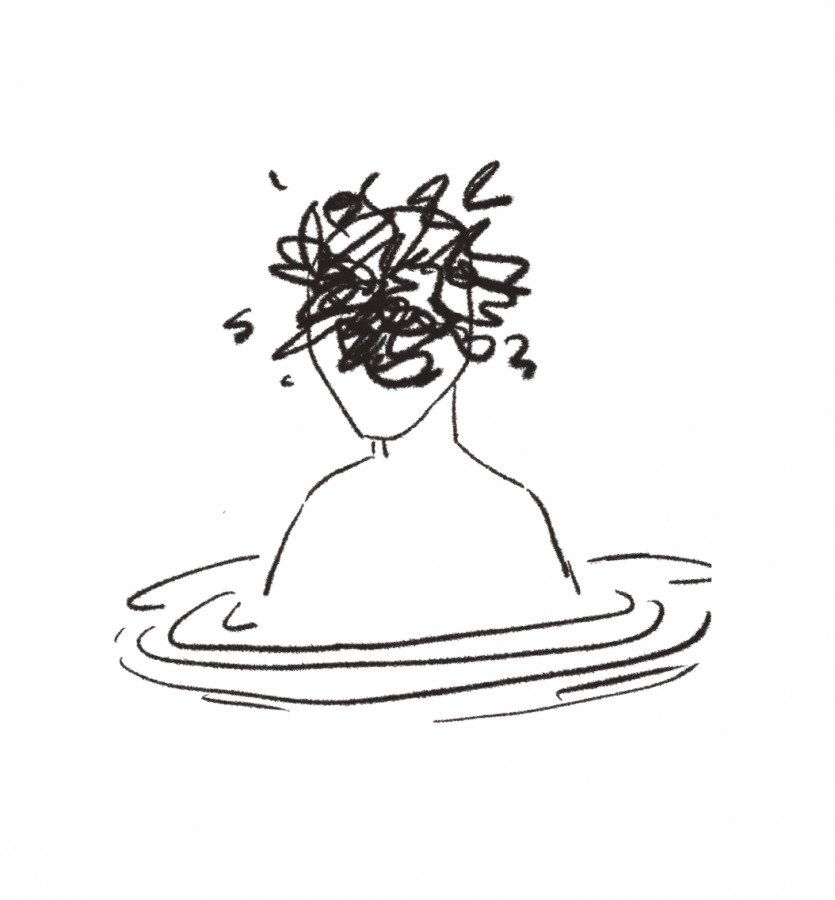The phenomenon of teenage angst
Angst first introduced itself to my psyche around the age of fourteen. I was emerging from a cocoon of innocence and embarking upon the long and arduous journey that is high school, nervously stumbling around the narrow, borderline-suffocating hallways as I searched for my classes and some sense of clarity. Needless to say it was a period of confusion, and Angst wasted no time in taking advantage of the tumultuous transition I was going through.
At first it would only appear before me through external means, having not yet infiltrated my sense of self. If I had to characterize it, my immediate visual would be a Keith Haring character, except whereas Haring would draw his creations in one swift motion, mine would be depicted through numerous, scraggly lines, carelessly trampling over one another, as though the artist wasn’t fully confident in his original attempts yet simultaneously careless in his efforts afterwards.
And so this was angst, following me on whatever outings I attended, sometimes forcing me to meet it’s taunting gaze by taking the shape of an isolated cloud or a large group of friends, smiling as I sunk into a heavy introversion.
Eventually I let angst enter my consciousness. It would slowly seep into my head through the music always ringing throughout my ears or the blue light constantly absorbed by my dilated eyes, my thumb endlessly scrolling through superficial landscapes and disconsolate albums.
Quickly familiarizing itself with the inner workings of my pubescent, developing mind, Angst got to work, muddling my thoughts together, blurring the reality I now witnessed through glazed-over eyes, amplifying my emotions without hesitation.
And so I turned inwards, not in a esoteric sense, for I was too caught up in the streams of my not even fully developed feelings, struggling to remain afloat in the waters of emotion Angst had procured within my mind, fearful of being pulled under by the tide of teenage adolescence.
Though slightly exaggerated, this feeling of angst is a universal experience, often confined to our adolescence years, occasionally carrying over into our formative years as adults. The dictionary definition of angst is “a feeling of deep anxiety or dread,” though the word can be used more loosely to encompass existential thoughts, “edgy” behaviors, and a feeling of solipsism, or isolation.
The neuroscience behind this phenomenon is relatively straightforward. Our teen years represent a period of major growth, not just physically but mentally. Our amygdala – the part of the brain that stimulates fear – matures at a much faster pace than our prefrontal cortex, which is responsible for reason and logic. As a result we become incredibly anxious creatures, constantly fearful, unable to combat these seemingly irrational fears with rational thought and reason. To add to this, our reward center within our brain also develops rather quickly, which is why we tend to be more willing to take risks without consideration of consequence. This paradox of constant anxiety mixed with a seemingly innate urge to experiment can prompt us to feel incredibly isolated internally, despite how many people we surround ourselves with.
So how do we combat angst? While it may seem solely like an individual experience, there are many shared techniques most of us tend to fall back on for consolation and comfort, though most tend to be unhealthy.
Perhaps the most common method of fighting our existential dread is turning towards mindless entertainment. Whether it be scrolling through social media or allowing Netflix to autoplay the next episode, we are constantly bombarding our minds with content that helps in the moment, but often leaves us feeling empty and craving more.
Another common coping mechanism is the tendency to simply give in to our angst, feeding ourselves sad songs and ruminating on past mistakes, digging ourselves deeper into a hole of stress and dread. If not giving in, then we try to ignore it, meticulously structuring our days and following the advice of self-help gurus, thinking we’re helping our psyche when in reality we’re making ourselves more detached from it.
As mentioned above, much of our angst happens internally, and we shouldn’t rely on external means to combat it. We have to be willing to accept it as a natural process of adolescence. Most importantly, we have to be willing to be vulnerable, to spend time alone and reflect on what we can and can’t control, to get to the roots of thoughts that are only exaggerating our angst. When we get to the roots of these thoughts, it becomes easy to discard them.



